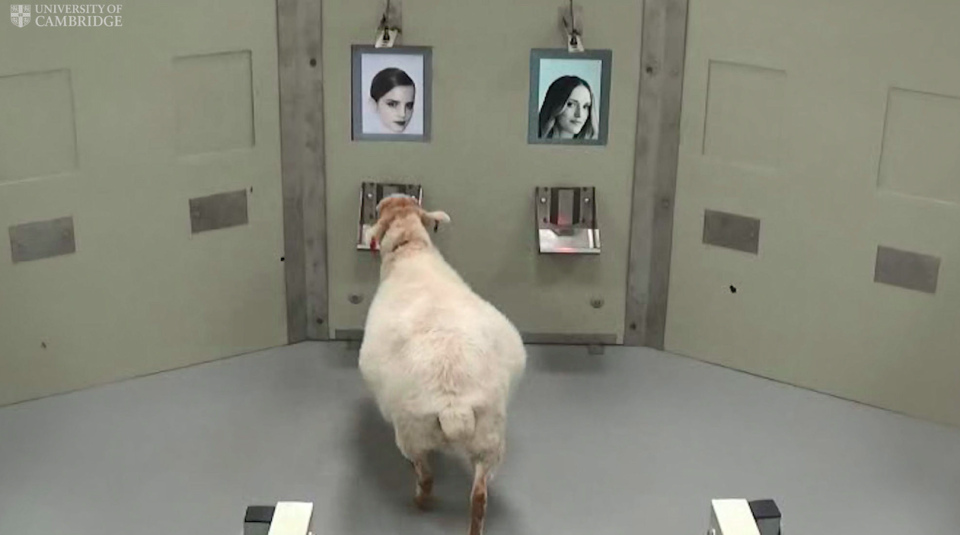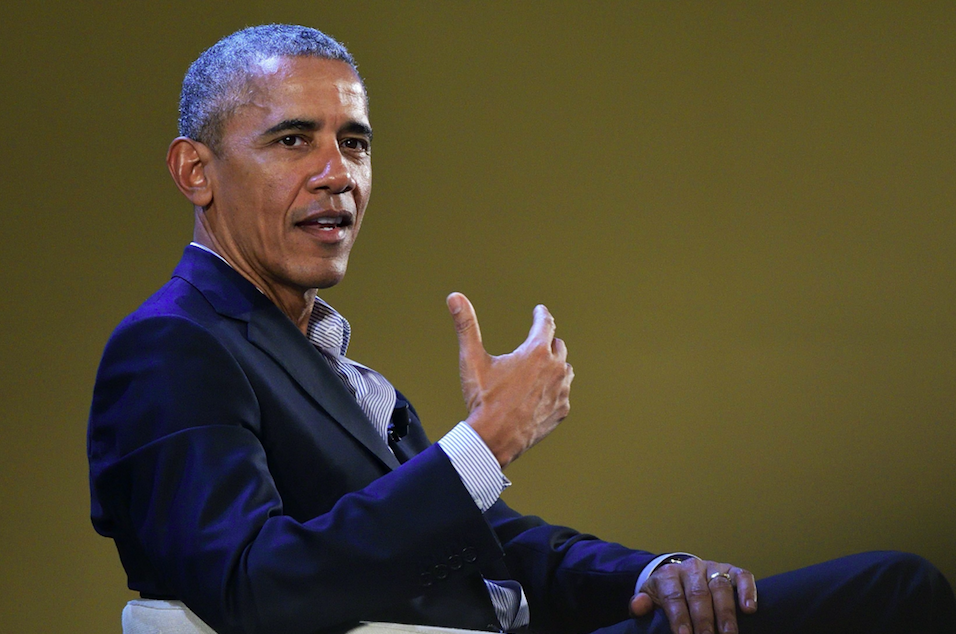Clever sheep can actually recognise celebrities - including Barack Obama and Emma Watson
You may think sheep do nothing but eat grass and get in the way of cars but they are holding on to an astonishing secret.

It seems that the animals are actually a lot more clever than we give them credit for – and are even able to recognise celebrity faces.
Sheep were already known to respond to familiar faces, both of other members of their own species and humans.
But a new study showed how they could be taught to recognise screen-shot images of celebrity faces like Barack Obama using food rewards.
They were even able to identify faces seen from an angle with about the same success rate as a human.
Researchers also discovered that sheep can recognise images of their human handlers without any previous training.
Shown a portrait of their handler alongside that of an unfamiliar person, they did a “double take” before approaching the face they knew.

Lead scientist Professor Jenny Morton, from Cambridge University, said: “Anyone who has spent time working with sheep will know that they are intelligent, individual animals who are able to recognise their handlers.
“We’ve shown with our study that sheep have advanced face-recognition abilities, comparable with those of humans and monkeys.”
The team trained eight sheep to recognise the faces of four celebrities – TV journalist Fiona Bruce, American actor Jake Gyllenhaal, Harry Potter star Emma Watson and Barack Obama, from photographic images displayed on computer screens.
MORE: Brexit ‘pledge’ of £350m for the health service must be honoured, says NHS chief
MORE: The iPhone X is ‘the most breakable and most expensive to repair’ ever made
Placed in a special pen, each animal in turn was shown two images of human faces, one of them the “target” celebrity.
A reward of cereal pellets was dispensed when a sheep crossed an infra-red beam in front of the celebrity image. If it approached the wrong image, a buzzer sounded and no reward was given.
After training, the sheep were put in the pen again to test their ability to recognise celebrity faces previously associated with food rewards. They correctly chose the learned celebrity face eight times out of 10.

When the experiment was repeated with the portraits displayed at an angle instead of face-on, the sheep’s performance dropped, but only by about 15%. This is on a par with the ability of humans to recognise partially seen faces.
In a last test, the sheep were shown photos of their handlers interspersed randomly in place of the celebrity.
Seven times out of 10, the sheep chose the face of their handler over that of a stranger, despite no prior food-association training. They also displayed peculiarly human behaviour when deciding between the two images.
Seeing a photograph of their handler for the first time, the sheep literally did a “double take”, said the researchers whose findings appear in the Royal Society journal, Open Science.
They checked the unfamiliar face, then the handler’s image, and then the stranger’s photo again before settling on the handler’s portrait.
The scientists wrote: “Sheep are able to recognise familiar and unfamiliar human faces… It would be interesting for future research to include investigation of the abilities of sheep to identify emotional expressions on human faces, possibly in combination with assessing the behaviour in response to the emotional faces, which would provide valuable information for animal welfare.”
The face recognition ability of sheep could be used to investigate Huntington’s disease and other human brain disorders that affect mental processing, said the researchers.

 Yahoo News
Yahoo News 

